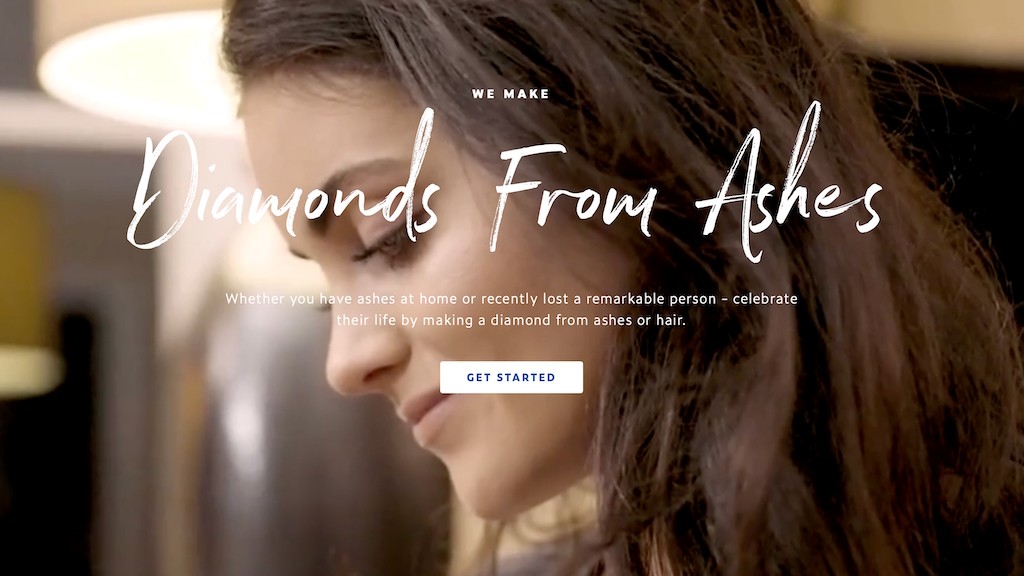
Project gist
Empathy is a “feature-rich and complete system” to help people cope with the death of loved ones. As the startup itself says, its service is “a combination of humanity and technology.” Translated into simple language, this means that it has made an app where users can get the help they need—from the app itself or from the startup’s counselors, who can be contacted through the app.
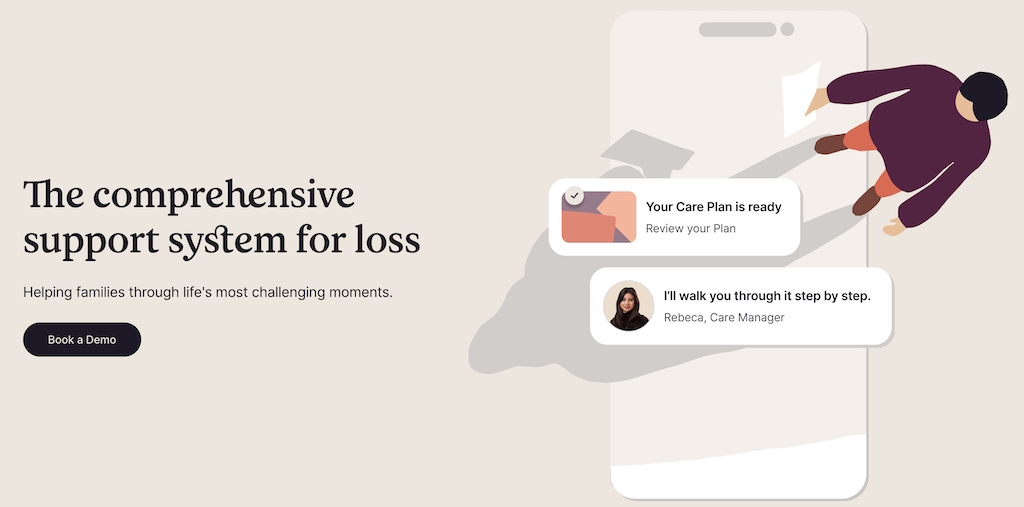
The app automatically creates a plan of action for the loved ones of the deceased. At such times, people are not thinking clearly, and besides, the process has its own subtleties and details, so the app’s help will come in handy. The app will help loved ones close the deceased’s accounts in social networks and financial services and stop debiting the deceased for subscriptions to cable TV, online publications, movies, series, etc.
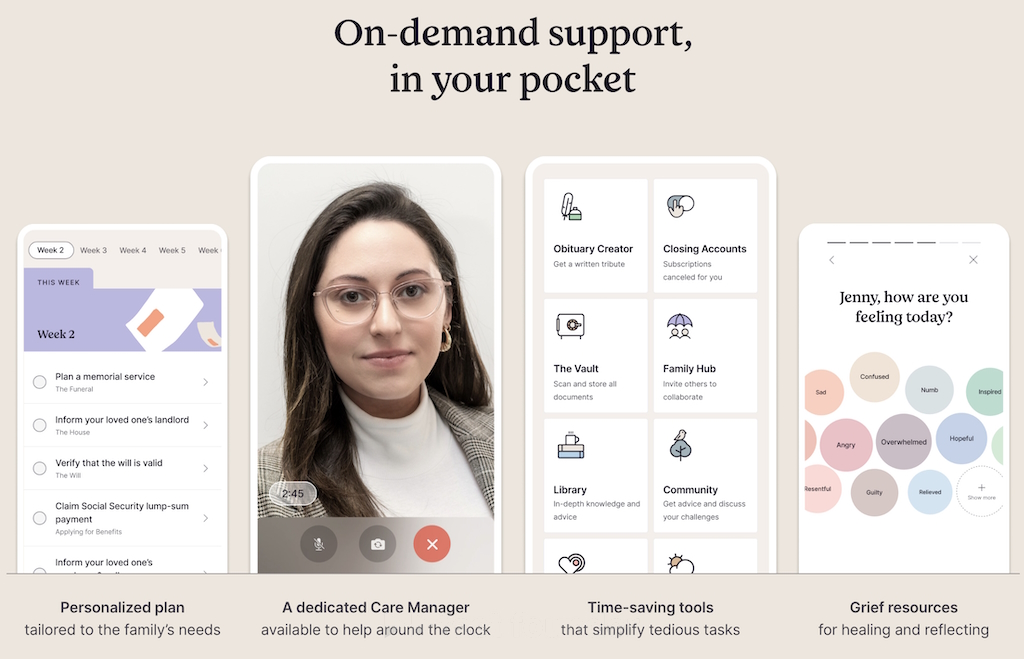
The app has a catalog of meditations, breathing exercises, and calming audio stories to help relieve stress. You can also read articles by experts here to get helpful information about your actions. After death, there are usually problems with finding and processing all sorts of documents, especially if the deceased had property and other assets registered in their name. In addition, in some cases, the loved ones may receive grants or other preferences from the state—but this also requires time and effort to communicate with government agencies and paperwork. Service specialists are ready to call all the necessary services and companies and prepare all the required documents.
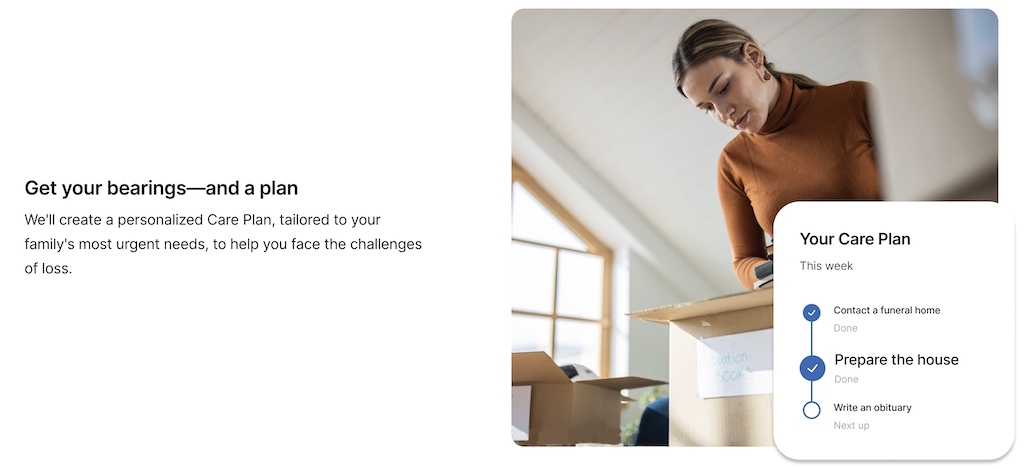
Of course, an app is a good thing. But in such moments, people want to hear a live human voice expressing sympathy and participation in affairs, not only the prompts of the application on the phone. That’s why each user is assigned a human counselor who can be contacted to discuss current grief cases. 92% of users say they felt better after starting to use Empathy after the death of a loved one. Not only that, the service has managed to save an average of 3,000 dollars to the families of the deceased.

The service was founded in 2020, and in the fall of that year, it raised a second investment ($30 million). And now a new $47 million.
What’s interesting
The topic of death is a sad one – but the market is big and eternal . Every year in the world now, about 60 million people die, and by 2100, the number of people dying will grow even two times more – to 120 million per year.

Every year, about 60 million people die in the world now, and by 2100, the number of people dying will increase twofold to 120 million a year. The size of the market is the number of relatives and friends of the deceased. If we consider that, on average, it is 2-3 people, then the market size now is 120-180 million people, and by 2100 it will grow to 240-360 million. If we take one country, for example, the United States, we can see that the dynamics of the number of deaths here is also growing significantly.

At the very beginning, Empathy tried to sell its service to people directly. But now their concept has changed – and they have become a B2B2C service. The startup sells its services to insurance companies, employers, and counselors, who give their employees and clients access to the service when their loved ones die. Dealing with the aftermath of a loved one’s death is a job. Families of the deceased spend an average of 12.5 months resolving all the issues and problems, working 20 hours a week.

78% of people begin to experience financial problems after the death of a loved one. But 98% of them now, cynically enough, don’t become customers of financial and insurance companies – which becomes a missed opportunity for those companies. Using this reasoning, the startup has added its service to the list of services for 28 million insurance company customers. The conversion from them into buyers of additional services was three times higher than from any other sales channel.

26% of U.S. employees face the death of someone close to them each year. 47% say that their labor productivity is reduced because of stress and the fact that they begin to devote less time to work at that moment. 40% even consider changing jobs after the death of a loved one – both because of their worsened financial situation and because their soul begins to demand change. If they don’t even quit their job, they start spending more than 1 hour of work time per day on resolving the problems that have arisen and dealing with their grief.
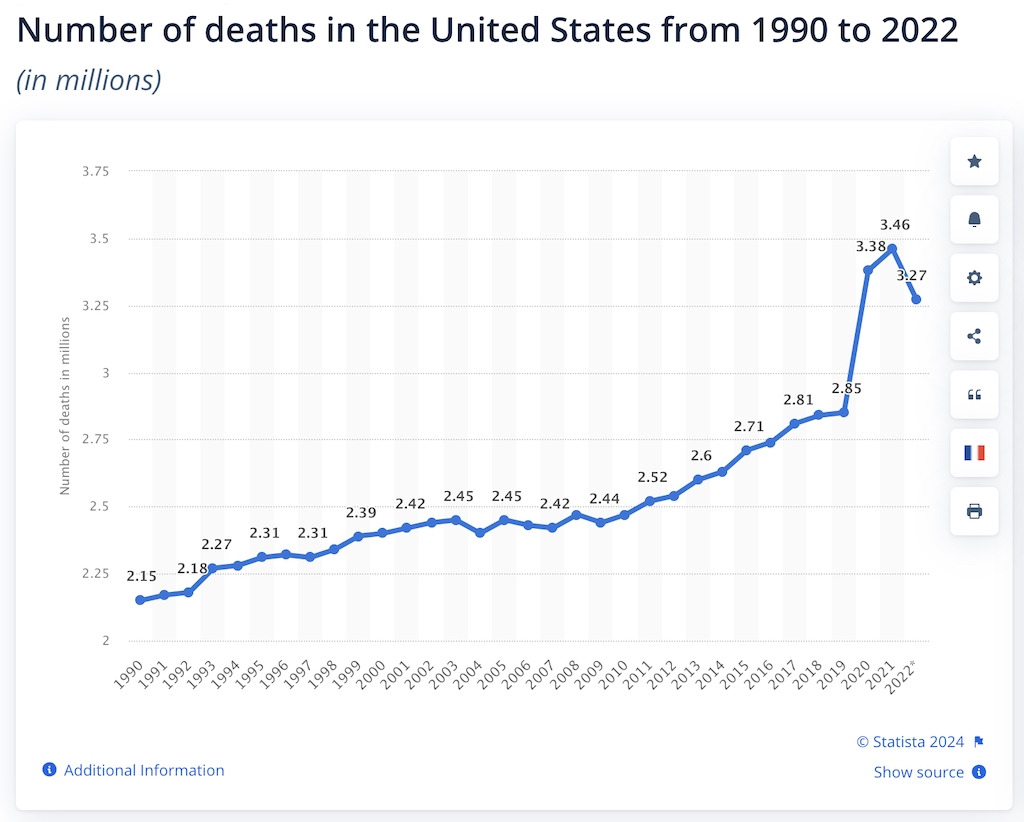
With this reasoning, the startup has reached 5 million employees working in Empathy’s client companies. This allowed companies to save $190,000 per 100 employees who used the service and reduce lost productivity by 25% for employees who experienced the death of a loved one. 33 million users and $90 million in investment are not bad results for a startup that will be four years old this year.

Where to go
As I wrote above, the death market is large and perpetual. That’s why very different startups are popping up here. Lantern not only helps the deceased’s loved ones in an Empathy-like way but also helps the person prepare all their affairs so that it doesn’t become a problem for their loved ones at the time of death. This startup raised 2.3 million dollars in investment.

Trust & Will focuses on only one aspect of preparing for death – appropriately formalizing existing ownership rights so that loved ones can have a hassle-free disposition of those assets after the owner’s death. This includes setting up a trust, executing a will, and all the paperwork before and after the owner’s death. Despite narrowing the topic, this startup raised 48 million dollars (new investments were already after my review).

Eterneva created a service for turning the ashes of deceased loved ones into faux diamond jewelry – and raised $17.8 million for it.

So, the general direction of travel is toward the everlasting and growing death market. The Empathy model, the B2B2C approach, and the Trust & Will model are understandable and, sadly, valuable models that could be replicated for this purpose.

About the company
Website: empathy.com
Last round: $47M, 12/03/2024
Total investment: $90M, rounds: 3
